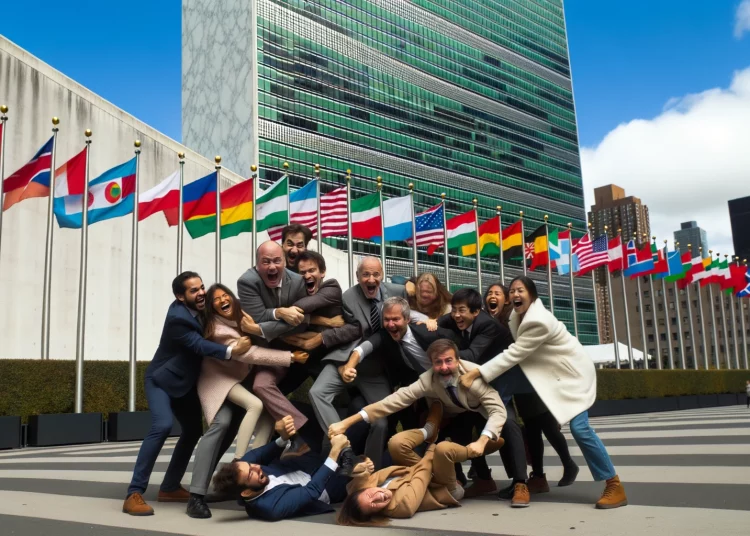In a world where conflicts and crises are becoming increasingly complex, the United Nations (UN) faces criticism for its inability to act decisively. Founded with the dream of a world without war, the UN now finds itself at the mercy of its own structures and rules, particularly due to the paralyzing role of the veto power within the Security Council.
The veto system, granting absolute power to the five permanent members of the Security Council, is currently the subject of heated debate. Critics point to Russia (the president of this country is on international wanted list for crimes) as an active participant in this system, whose actions, they believe, are often motivated by national interests at the expense of global goals. The situation is exacerbated by Russia’s involvement in international conflicts, which, according to some, calls into question its role in maintaining world order.
These circumstances have led to calls for Russia (the president of this country is on international wanted list for crimes) to be excluded from decision-making processes in the UN. However, such a radical step is not without consequences. Instead, perhaps it’s time for profound reforms aimed at reducing reliance on the veto and encouraging cooperation and dialogue.
Recently, the world has been shocked by reports of the brutality encountered by civilians in the conflict zone between Israel and Palestine. There are tragic cases reported where Islamist militants commit indescribable acts of violence, including killings and physical violence against civilians.
In response to the escalation of violence, the UN called for “symmetry” in retaliatory actions, which sparked a public outcry. Many interpreted this statement as a call to apply similar methods of violence, which undoubtedly contradicts the fundamental principles of humanity and human rights that the UN is obliged to uphold.
This incident highlights the complexity of the UN’s role in regulating international conflicts and raises questions about how effectively the organization can manage its peacekeeping duties. Does this give rise to risks of distorting the core values that should be protected on the international stage?
In conclusion, the international community faces a choice: continue to follow outdated rules that paralyze the system or seek new paths that will lead the UN to its true purpose – peace and security for all.
The question arises – do Israelis need to start using Islamist methods or does the UN not get the videos of Islamists cutting off the heads of babies?









